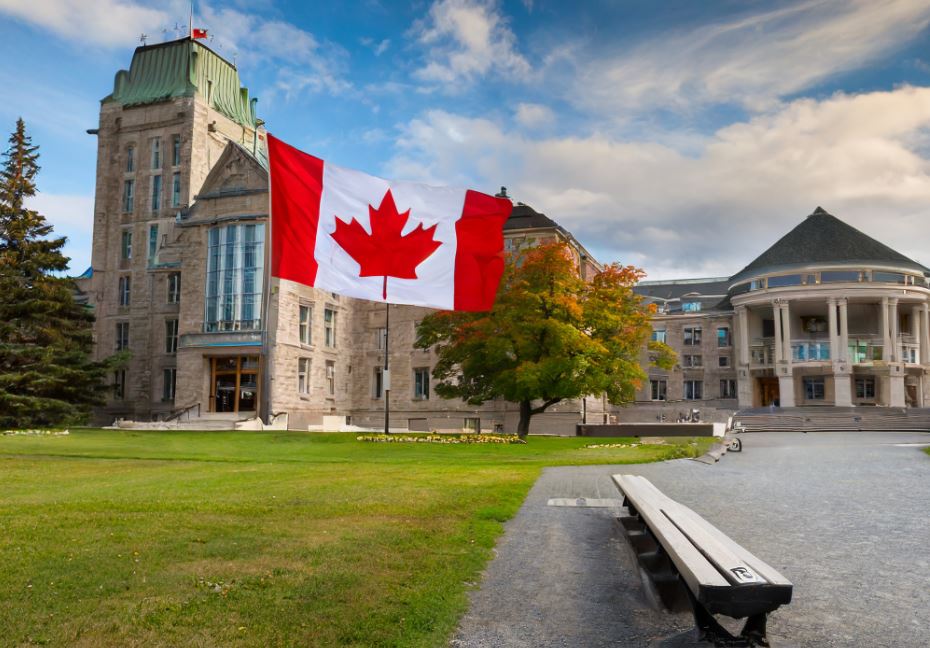Securing a scholarship in a Canadian university requires careful planning, research, and a strong application. Here’s a guide to help you navigate the process:

1. Research Scholarships:
- Explore scholarship options offered by Canadian universities, government agencies, private organizations, and international foundations.
- Check the eligibility criteria, application deadlines, and requirements for each scholarship.
2. Choose the Right Program and Institution:
- Identify universities and programs that align with your academic and career goals.
- Some scholarships are specific to certain fields of study or institutions.
3. Meet Admission Requirements:
- Ensure you meet the academic and language proficiency requirements for your chosen program.
- Many scholarships are merit-based and linked to academic achievements.
4. Apply for Admission:
- Submit a strong and well-prepared application for admission to your chosen university.
5. Research Government Scholarships:
- Explore Canadian government scholarships such as the Vanier Canada Graduate Scholarships or the Canada Graduate Scholarships-Master’s Program.
6. Explore Provincial Scholarships:
- Some provinces in Canada offer their own scholarship programs. Research the opportunities available in the province where you plan to study.
7. Check University-Specific Scholarships:
- Most universities have their own scholarship programs for international students. Research and apply for these opportunities.
8. Consider External Funding:
- Look for scholarships from private organizations, NGOs, and international foundations that support students studying in Canada.
9. Prepare a Strong Application:
- Write a compelling personal statement outlining your academic and career goals.
- Gather strong letters of recommendation from professors or employers.
10. Demonstrate Financial Need:
- Some scholarships are need-based. Be prepared to demonstrate your financial need through documentation.
11. Apply Early:
- Adhere to scholarship application deadlines. Applying early increases your chances of success.
12. Explore Merit-Based Scholarships:
- Some scholarships are awarded based on academic excellence, extracurricular achievements, or leadership skills.
13. Be Aware of Renewal Requirements:
- Understand the renewal criteria for the scholarship to maintain funding throughout your studies.
14. Seek Guidance:
- Consult university advisors, academic mentors, or scholarship offices for guidance on the application process.
15. Be Persistent:
- Applying for scholarships can be competitive. Be persistent, and consider applying to multiple scholarship opportunities to increase your chances of success.
Remember to tailor your application to the specific requirements of each scholarship, and don’t hesitate to seek assistance if needed. Good luck in your pursuit of a Canadian university scholarship!
Student futures in Canada for foreigners
Canada offers a promising future for international students due to several factors, including its high-quality education system, diverse and inclusive society, robust economy, and various opportunities for personal and professional growth. Here are key aspects that contribute to a positive student future in Canada:
- Quality Education: Canadian universities are globally recognized for their academic excellence and research contributions. Degrees earned in Canada hold international prestige, enhancing career prospects.
- Multicultural Environment: Canada is known for its welcoming and inclusive society. Studying in a multicultural environment provides students with a global perspective, fosters cultural understanding, and prepares them for a diverse workforce.
- Work Opportunities: Canada offers various work opportunities for students, both during and after their studies. Many students take advantage of co-op programs, internships, and part-time work to gain practical experience in their field of study.
- Post-Graduation Work Permit (PGWP): Upon graduation, students may be eligible for a PGWP, allowing them to work in Canada for a duration equal to the length of their study program, up to three years. This provides valuable work experience and an opportunity to contribute to the Canadian workforce.
- Permanent Residency Pathways: Canada has immigration programs, such as the Express Entry system, Provincial Nominee Programs (PNPs), and the Canadian Experience Class (CEC), which make it easier for international students to transition to permanent residency.
- High Quality of Life: Canada consistently ranks high in global quality of life indexes. Cities like Toronto, Vancouver, and Montreal offer vibrant cultural scenes, excellent healthcare, and a high standard of living.
- Innovation and Technology: Canada is at the forefront of technological advancements and innovation. Students in STEM (Science, Technology, Engineering, and Mathematics) fields have access to cutting-edge research and development opportunities.
- Networking Opportunities: Canadian universities often have strong ties with industries, providing students with networking opportunities and connections that can lead to internships, job placements, and mentorship.
- English and French Language Skills: Being bilingual in English and French can significantly enhance career prospects, especially in a globalized job market.
- Global Alumni Network: Canadian universities have a vast alumni network, providing students with valuable connections and potential mentorship from successful professionals in various fields.
- Safe and Inclusive Society: Canada is known for its safety and inclusivity. The country’s commitment to human rights and diversity creates an environment where students from all backgrounds can thrive.
- Environmental Stewardship: With a strong commitment to sustainability and environmental conservation,






